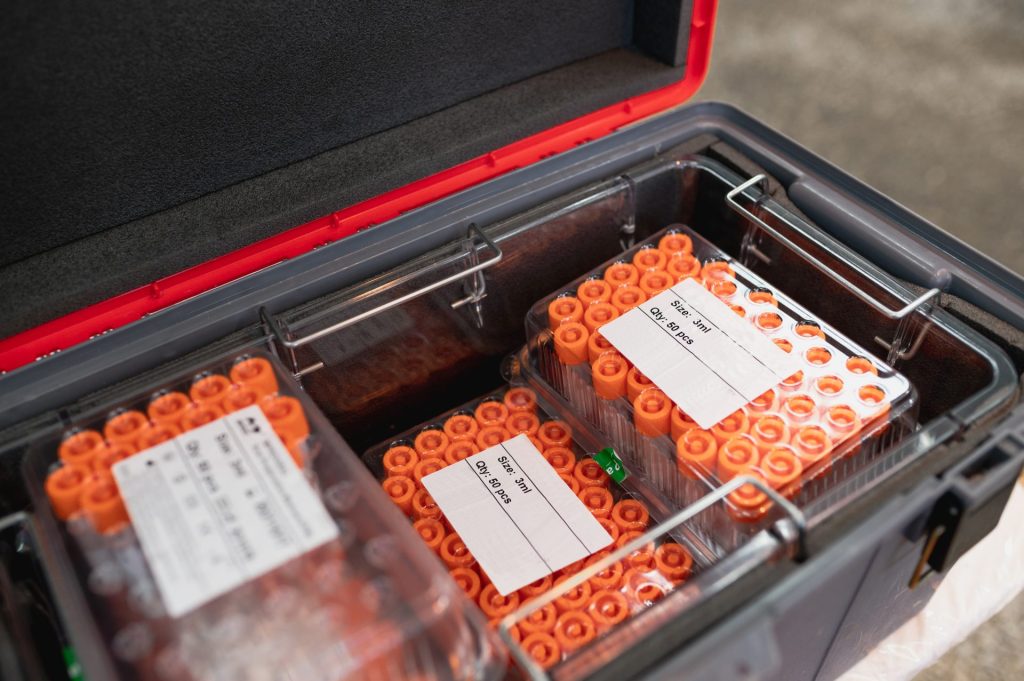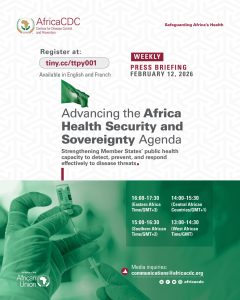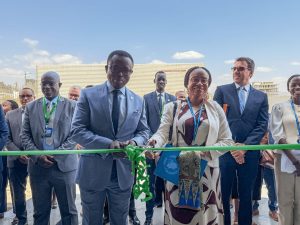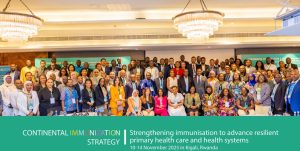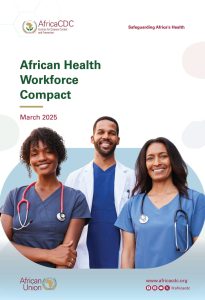What began as a massive expansion of cold chain space required to accommodate both COVID-19 vaccines and routine immunisation programmes continues today. Now, it is curbing high levels of vaccine wastage, empowering communities, and enabling Africa – particularly Uganda – to withstand current and future health challenges.
In 2021, faced with the possibility of receiving up to 900 million doses of COVID-19 vaccines to vaccinate 70% of Africa’s population, Dr John Nkengasong, then Director of the Africa Centres for Disease Control and Prevention (Africa CDC), tasked his team with assessing and expanding cold chain capacity. The existing capacity and the required space to receive such vaccines were difficult to estimate, and supply planning was based on assumptions.
A massive expansion of cold chain space was required to accommodate both COVID-19 vaccines and those for routine immunisation programmes. It became the responsibility of Dr Merawi Aragaw Tegegne, Africa CDC’s Acting Head of the Division of Emergency Preparedness and Response, to ensure that sufficient space and the necessary components were in place to make this a success.
True to this vision, several African countries remain on the list for support. At the end of July, Uganda’s Ministry of Health became the latest recipient of cold chain equipment – though not for the first time.
Health Minister Dr Jane Ruth Aceng led the ministry in receiving a donation of 500 solar-powered cold chain refrigerators from the Africa CDC and the Mastercard Foundation. Included among the equipment are 1,746 remote temperature-monitoring devices to ensure real-time oversight of storage conditions from a central monitoring hub.
“The solar direct-drive refrigerators will increase vaccine storage capacity, both at district vaccine stores and health facility levels. These refrigerators will significantly improve vaccine availability across the country, ensuring that each vaccine reaches every child, every mother, and every community safely and effectively,” said Dr Aceng.
Designed to safely store and deliver vaccines, over a period of two months the refrigerators are being installed in selected hospitals and hard-to-reach areas, prioritising health centres in off-grid locations or those facing challenges with hydroelectric power supply.
“Most importantly, the refrigerators will provide storage powered by solar energy, which we have in abundance. This will significantly reduce vaccine wastage and improve coverage,” she added.
Uganda’s progress in immunisation includes the recent addition of the malaria vaccine to its already comprehensive 14-vaccine routine. However, the country faces the challenge of maintaining coverage amidst 1.5 million new births annually, Dr Aceng noted.
“To maintain vaccine potency and availability – especially with our expanding antigen schedule – we must have a robust cold chain system that reliably delivers vaccines on time and in optimal condition to every child in Uganda,” she said. “This includes not only routine vaccines but also those required for outbreak response.”
A well-functioning cold chain network that is accessible at all levels of care, supported by reliable infrastructure to ensure timely supply of vaccines and immunisation materials – backed by a motivated workforce – is critical to ensuring the system delivers, Dr Aceng added.
Complementing these efforts is Uganda’s National Medical Stores (NMS), which hosts Africa’s largest and most digitised medical warehouse, featuring advanced cold chain infrastructure with seven walk-in cold rooms, two ultra-low temperature freezers, and capacity for up to four million vaccine doses. Strategically located near Entebbe International Airport and connected to regional transport corridors, the NMS has the potential to serve as a regional hub for vaccine storage and distribution, further strengthening health security and preparedness across Eastern Africa.
The equipment, valued at US$4.3 million, aligns with Uganda’s national immunisation plan and Africa CDC’s broader goal of ensuring equitable vaccine access across the continent.
“A reliable cold chain is one of the unsung heroes of public health,” said Dr Lucy Mazyanga, Africa CDC’s Eastern Africa Regional Director. “We celebrate vaccines, but without a functional cold chain they lose their potency – and with it, their promise to save lives. This milestone is an investment in life, resilience and equity.”
Bringing this milestone to life, Dr Mazyanga shared a story: a mother once brought her infant for immunisation, but the fridge had failed the night before and the vaccines were compromised. Not wanting to turn her away, the health worker vaccinated the child. Months later, a disease outbreak occurred – and sadly, the children who had received the compromised vaccines were among those affected, with fatal consequences in some cases. That is the cost of a faulty cold chain.
The latest donation to Uganda follows a similar 2024 intervention by Africa CDC, which delivered 38 refrigerators, 72 cold boxes and 4,200 vaccine carriers to Uganda’s newly designated cities. Dr Yaron Wolman, Chief of Child Survival and Development at UNICEF, described the donation as part of a broader mission to save lives and protect livelihoods.

